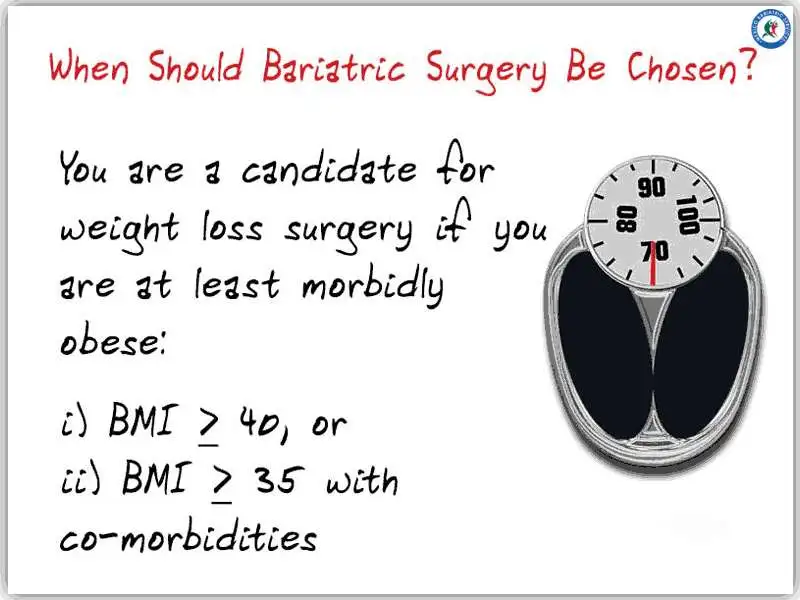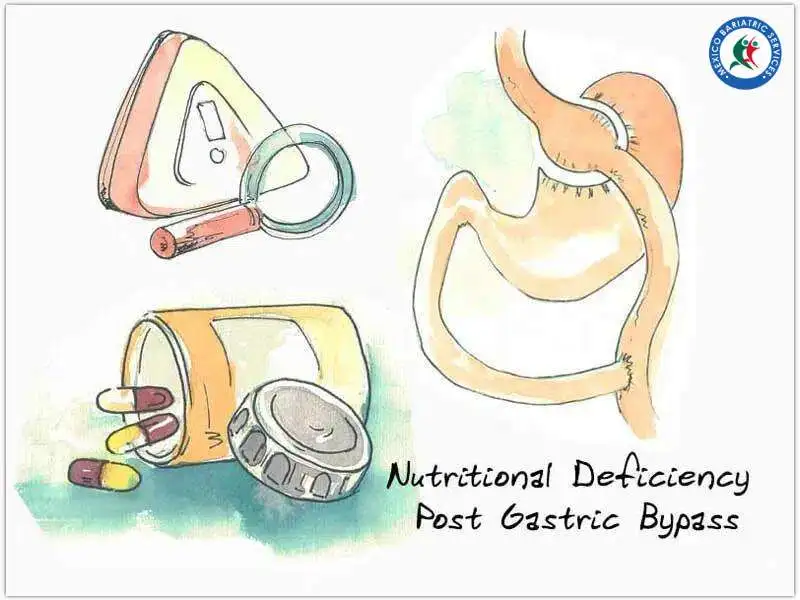Why Should I Choose Bariatric Surgery?
Medically Reviewed by Katelyn J. Mock, US-Registered Dietician (R.D.)
Different types of bariatric surgeries performed on the stomach help the process of weight loss. These surgeries are only recommended for obese persons who can’t shed excess pounds through exercise or diet.
It is usually the last resort after conventional means to lose weight have failed.
Getting bariatric surgical procedures is a matter of personal choice. Most people approach their surgeons with the sole aim of living a healthy and disease-free life. One has to be prepared mentally to undergo bariatric surgery.
Having an interactive session with the concerned bariatric surgeon will help you make a more informed decision based on your individual needs. Know that surgery alters the body permanently and in no case should be chosen hastily.

Who is an Ideal Candidate
Your Body Mass Index (BMI) will help define whether you should consider undergoing surgery. The rule is simple. You might be needing a weight loss surgery if you have a:
- A BMI of 40 or above
- BMI of 35 or above with comorbidities viz diabetes, hypertension, etc.
- In exceptional cases, a BMI of 30 or above may also qualify
Ask the bariatric surgeon all possible questions and discuss the available options, such as Sleeve Gastrectomy and Roux-en-Y Gastric Bypass, to name a few. The method suggested will depend upon multiple factors, such as:
- Body weight and BMI
- Age of the candidate
- Associated co-morbidities
- Capacity to integrate changes pre and post-op
Top Reasons to Choose Bariatric Surgery
1. Weight Loss
The patient loses up to 60% of their excess weight with a forced calorie restriction coupled with exercise.
2. Reduction in Stomach’s Holding Capacity
Bariatric surgery reduces the size of the stomach in some procedures and modifies the intestines in others. This decreases their food-holding capacity and changes the way calories are absorbed in the body.
3. Greater Chances of Resolution of Co-morbidities
Some of the benefits of bariatric surgery include getting rid of illnesses such as high cholesterol, sleep apnea, high blood pressure, and other related conditions.
Before taking the leap, pick your bariatric surgeon judiciously.
Negative Effects of Bariatric Surgery
While there are more benefits of bariatric surgery than negative effects, it is advisable to know the potential risks. The greater the degree of obesity and co-morbidities, the greater the benefit of the surgery.

1. Nutritional Deficiencies
Bariatric surgery is an effective way to reduce obesity and co-morbidities, however, at the cost of nutritional deficiency. So taking vitamins and nutritional supplements is an integral part of post-bariatric life.
2. Potential Risks Related to Bariatric Surgery
It will also be beneficial to acquaint yourself with the potential risks and complications of gastric bypass surgery or any other weight loss surgery before you take the plunge.
For best results, follow the instructions given by the bariatric surgeon religiously.
Going under the knife is a life-altering decision and requires long-term devotion.
Note that surgery alone cannot work wonders, and it has to be supplemented with mindful eating habits and regular physical activity to avoid weight regain.
Incorporate simple yet powerful changes in your lifestyle for a better future!
This Post Addresses
- Benefits of Weight Loss Surgery
- Do I Qualify for Bariatric Surgery?
- Why Go for Weight Loss Surgery?
- Advantages and Disadvantages of Weight Loss Surgery

